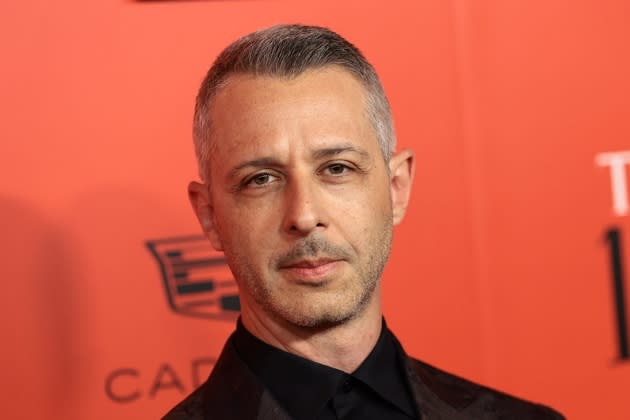Jeremy Strong Says Viral New Yorker Profile Was “15 Minutes of Shame”

Jeremy Strong says his buzzy 2021 New Yorker profile was a moment of shame but that he’s not planning on changing how he approaches his craft despite the online backlash or his co-stars’ responses.
In a new GQ cover story, Strong addresses the viral profile written by Michael Schulman that garnered a wave of questions (and jokes) about the impact of the actor’s chosen performance style, as well as a slew of Hollywood responses in support of the Emmy nominee.
More from The Hollywood Reporter
Ernie Hudson Says 'Ghostbusters' Affected Him Psychologically: "It Wasn't an Easy Road"
Alec Baldwin and 'Rust' Armorer Charges Downgraded, Removing Potential Five-Year Prison Sentence
In the New Yorker story, the intensity of Strong’s acting choices were called into question, with one particular note — about his request to be tear-gassed while filming a scene as social activist and anti-war leader Jerry Rubin in Aaron Sorkin’s Trial of the Chicago 7 — resurfacing to mixed online reactions.
The response to that profile was, for the Succession and Armageddon Time actor, “15 minutes of shame, with a long tail,” he says, which was exacerbated by the writer’s connection to Yale, taking Strong back to his collegiate experiences.
“I hadn’t felt judged like that in a very long time,” Strong says. “The shadow is the part of ourselves that we don’t want to share with the world and we want to disavow. The part of me that is striving. The part of me that wants what I want. I was less bothered by other actors having feelings or opinions about the way I work. Really, it was just feeling exposed.”
Strong went on to discuss the impact of his Succession co-stars participating in the profile, including Brian Cox and Kieran Culkin. As part of the 2021 story, Cox acknowledged that his co-star always delivers “pretty tremendous” performances as a result of his method, but added that he worried about what “the crises he puts himself through in order to prepare” might do to the younger actor.
“Everyone’s entitled to have their feelings. I also think Brian Cox, for example, he’s earned the right to say whatever the fuck he wants. There was no need to address that or do damage control,” Strong told GQ. “I feel a lot of love for my siblings and my father on the show. And it is like a family in the sense that, and I’m sure they would say this, too, you don’t always like the people that you love. I do always respect them.”
The Succession star also pushed back on Cox’s characterization of him as someone “in pain,” noting that the older actor had only interacted with him as a performer. “I don’t think there is,” Strong said of whether there was truth to Cox’s comments. “There’s certainly a lot of pain in Kendall, and I haven’t really met Brian outside of the confines of that.”
The online reaction to the piece led some to question whether Strong risks the safety of the people he works on set with after it was reported that Sorkin declined to use real tear gas for Strong’s performance, as there were around 200 other performers on set along with 70 crewmembers. But in the days that followed, a number of stars came out in support of Strong, including Sorkin and fellow director Adam McKay.
At the time, a New Yorker spokesperson told THR, “This is a nuanced, multi-sided portrait of an extremely dedicated actor. It has inspired a range of reactions from people, including many who say that they are even more impressed by Jeremy Strong’s artistry after having read the article.”
But in a lengthy letter from Sorkin shared to Twitter by actress and producer Jessica Chastain, the award-winning writer and filmmaker defended Strong, writing that he would “never suggest endangering a member of the cast or crew or anyone else” was Strong’s intention and that the performer would never “consider disrespecting an actor.”
While the piece impacted Strong in some way, he expressed that neither the article nor the response to it has changed how he thinks about his performances. “Am I going to adjust or compromise the way that I’ve worked my whole life and what I believe in? There wasn’t a flicker of doubt about that,” he explained. “I’m still going to do whatever it takes to serve whatever it is.”
He clarified that that doesn’t mean he’s “riding roughshod over other people.” Instead, for him, his approach to acting will remain “a very solitary thing.”
He added: “I think there’s very low impact on others except for what they might want to project onto it and how that might make them feel. If anything, I was worried — could it have harmed how I feel about doing what I do? And that kind of haunted me for a while. Acting is a bit of a game, right? And depending on how you look at it, it can be quite a ridiculous game. The thing is to commit to the game.”

